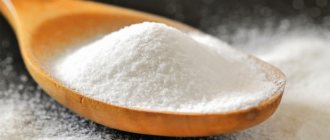Bloating during pregnancy is an unpleasant phenomenon that deprives a woman of a full life. After conception, changes occur in the expectant mother's digestive system that cause discomfort. Pregnancy is almost always accompanied by flatulence, that is, increased gas formation in the intestines. There is no need to worry: this is a normal state of the body. It is urgent to go to the doctor only if bloating during pregnancy provokes pain and malaise.
Flatulence concept
Flatulence is the excessive formation of gases in the intestines. The vast majority of women experience bloating during early pregnancy. You can even say that increased gas formation is one of the signs of conception. Although flatulence during pregnancy is not considered a serious pathology requiring immediate treatment, it is still advisable to get rid of bloating during pregnancy.
Compression of blood vessels in the pelvic tissues causes bloating during early pregnancy. As a result, the uterus receives an insufficient amount of blood, the expectant mother suffers from swelling, and the embryo in the womb experiences oxygen starvation.
Preventing gas during pregnancy
If you follow some preventive measures, you can completely avoid bloating during pregnancy. What needs to be done for this:
- Eat right:
- Don't overeat - keep portions small
- Chew your food thoroughly
- Sit correctly while eating (so as not to compress the digestive organs)
- Do not eat foods that are poorly absorbed by the body and cause flatulence.
- Do not drink coffee, alcoholic and carbonated drinks (replace them with compote and kefir)

- Follow your diet. Do not eat:
- Pickled vegetables
- Raw fruits and vegetables
- Fatty foods
- Fried and salty foods
- Exercise. Yoga in this regard is the best preventative against gas formation during pregnancy, especially if you do it in the fresh air. If yoga is not your thing, you can go to the pool or simply take a walk in the fresh air as often as possible.
- Do not smoke unless you quit this bad habit immediately after learning about your interesting situation.
Remember that bloating during pregnancy is not a terrible pathology, but only a temporary phenomenon that you can get rid of by following the recommendations of your doctor.
Causes of bloating during pregnancy
Bloating during pregnancy in the 1st trimester most often occurs due to hormonal imbalances in a woman’s body. The main function of the hormone progesterone is to protect the embryo. It affects the muscle tissue of the uterus, reducing the frequency of its contractions to prevent miscarriage. But the activity of the hormone affects the muscles not only of the genitals, but also of many other organs, including the digestive tract. An increase in the concentration of progesterone in the blood causes relaxation of the muscles of the walls of the stomach and intestines. As a result, the intestinal tract loses the ability to perform normal peristalsis and gradually fills with gases.
Bloating during pregnancy in the 2nd trimester occurs due to the pressure of the enlarging uterus on the intestines. Food cannot pass freely through the compressed intestines, which inevitably leads to constipation, fermentation processes and the formation of gas bubbles. Flatulence in pregnant women is often provoked by the use of medications containing iron. Bloating in late pregnancy is not dangerous as it is just a symptom of bowel irritation. But you should definitely consult a doctor if flatulence during pregnancy is accompanied by pain.
The following factors also cause bloating during pregnancy:
- poor nutrition;
- insufficient water intake;
- wearing tight and uncomfortable clothes;
- sedentary lifestyle;
- smoking and addiction to alcoholic beverages;
- chronic diseases of the digestive system.
Symptoms of bloating during pregnancy:
- Heaviness in the abdomen, frequent and strong emission of gases.
- Constant urge to vomit, not associated with toxicosis.
- Decreased appetite.
- Rumbling and seething in the stomach, bad breath.
- Indigestion, diarrhea, constipation.
Gurgling in the abdomen as a symptom of polyhydramnios
Gurgling in the stomach can also be caused by a more dangerous cause - polyhydramnios. This is a pathological condition of a pregnant woman in which the amount of amniotic fluid exceeds the norm. For example, at 10 weeks of pregnancy the volume of amniotic fluid is about 30 ml, at 14 weeks - 100 ml. When a woman has excess amniotic fluid, in addition to gurgling, there is also a feeling of heaviness and pain in the abdomen, malaise, and weakness in the body. Sometimes the abdomen with polyhydramnios becomes covered with rough stretch marks. With polyhydramnios, doctors call the so-called gurgling “fluctuation.” There is an acute and chronic form of polyhydramnios.
The consequences of this pathology can be quite sad. So, a third of women with this diagnosis have spontaneous miscarriages. 36% of pregnant women with polyhydramnios experience severe vomiting, which can lead to dehydration.
Sometimes the result of polyhydramnios is fetoplacental insufficiency, fetal hypoxia, and malformations of the nervous system of the unborn baby and the gastrointestinal tract. 38% of pregnant women with polyhydramnios experience heavy bleeding, and gestosis occurs in 5-20%.
The dangers of bloating during pregnancy
Flatulence in pregnant women is in most cases accompanied by migraines, loss of strength, lethargy, drowsiness, dizziness, tachycardia, and changes in blood pressure. The expectant mother, suffering from excess gas formation, sleeps and eats poorly, which negatively affects the condition of the embryo in the womb. If bloating during pregnancy does not go away for too long, then the woman begins to have problems with her heart rhythm, and the fetus may suffer from vitamin and nutritional deficiencies. Gases accumulated in the intestines put pressure on the uterus, which increases the risk of miscarriage or premature birth.
Gases during pregnancy: what to do?
If severe pain occurs from gases during pregnancy , the woman needs to tell her gynecologist about it, who will decide what to do:
- For pregnant women whose flatulence is accompanied by diarrhea or constipation, the doctor prescribes probiotics or prebiotics.
- If gases occur due to an aggravated chronic disease of the stomach or other organ of the digestive system, then drug treatment may be required.
- With severe gas formation, uterine bleeding may occur. If this happens to a pregnant woman, the doctor will definitely hospitalize her for a full examination and treatment.

In most cases, the doctor does not prescribe any drug treatment, but offers the woman other ways to get rid of gases during pregnancy . For example:
- You can lie on your left side and massage your stomach for 10 minutes in the part where the pain occurs.
- It is also recommended to drink a decoction of chamomile and dill.
- It is allowed to take periodically during severe attacks the following drugs that are safe for the mother and fetus:
- Espumisan, which improves the movement of gases in the intestines
- Pepsan, which reduces the risk of flatulence in a pregnant woman
- Lactuvit, which improves the intestinal microflora of the expectant mother
Diet for flatulence during pregnancy
Treatment of bloating during pregnancy involves, first of all, following a diet and creating the right menu. Additionally, if necessary, the doctor prescribes carminatives for flatulence.
To avoid flatulence, the expectant mother should limit and even eliminate the consumption of foods that contribute to the formation of gases in the intestines:
- beans,
- sauerkraut and marinades,
- rye bread,
- fried foods.
- mushrooms in any form
- sweet fruits (apples, peaches, pears, melons, grapes) and dried fruits (raisins and prunes)
- cereals (millet, pearl barley, barley)
- coffee and soda
During pregnancy, a restructuring of the microflora of the gastrointestinal tract occurs in the female body, a weakening of its protection, and an increase in the number of harmful microorganisms that provoke the processes of putrefaction and fermentation in the intestines. In order to weaken their influence, it is important for the expectant mother to take a number of measures that will help maintain healthy microflora and enhance the growth of beneficial bacteria
Food rich in minerals – calcium, iron, potassium and vitamins – will help. A balanced diet will help improve digestion and cope with problems such as bloating during pregnancy, constipation, and bowel disorders.
You should definitely include the following foods in your diet:
- low-fat varieties of fish, it is better to steam or boil it;
- light dairy products - low-fat cottage cheese, yogurt, sour cream. You can diversify the menu with cottage cheese casseroles and souffles;
- low-fat meat - beef, veal. Cook without frying or using oil;
- lean poultry and chicken eggs, boiled and in the form of an omelet;
- light broths prepared with lean meat or fish;
- mucous cereals in the form of porridges in water (rolled oatmeal, rice, pearl barley);
- crackers, dried wheat bread;
- fresh vegetables and herbs. Pumpkin, zucchini, beets, potatoes, carrots, garden parsley and dill are very useful;
- For drinks, it is better to prefer berry and herbal infusions (rose hips, blueberries, etc.), weak green tea, and cocoa without milk.
A healthy diet will help calm the gastrointestinal tract, reduce pain, reduce flatulence during pregnancy and normalize stool. Such a simple but healing diet can detect hidden food allergies or diseases of the digestive system in a latent form.
Does your stomach swell during pregnancy? Anti-flatulence medications will come to the rescue. For example, Iberogast, containing natural extracts of organic plants (Iberian bitter, milk thistle, chamomile, mint, cumin, licorice, lemon balm and others), helps solve intestinal problems, having a selective effect: relaxes parts compressed by spasms and tones weakened ones. It suppresses fermentation processes and neutralizes gas bubbles in the intestines.
This and other drugs (based on simethicone: Diflatil, Sab Simplex, Simicol) are recommended for use by pregnant women and infants, but they must be taken under the supervision of a doctor.
Seething and gurgling in the stomach during pregnancy, should you worry?
The female body is subject to various changes during pregnancy, but you should not treat them all with danger.
For example, if your stomach is seething during pregnancy, you must first establish the causes of this phenomenon. Perhaps these are wasted worries.
But in some cases, this phenomenon can be dangerous for the health of the mother and child, so it is worth contacting a qualified specialist and carrying out treatment measures.
Causes of stomach turmoil during pregnancy
Pregnant women often experience rumbling, gas, and bloating. Each of us is familiar with similar symptoms.
However, churning in the stomach during pregnancy can occur so often that the expectant mother begins to think about possible health problems.
This phenomenon, in addition to worries, causes inconvenience and discomfort, both to the expectant mother herself and to the people close to her. Naturally, every woman wants to get rid of it, but to do this, the cause of the problem must be determined.
In medical practice, seething in the stomach is called flatulence, which appears due to gas formation. As a result, a person feels bloated. Sometimes rumbling in the stomach during pregnancy is painful in varying degrees of intensity.
Absolutely every pregnant woman faces the problem of bloating, constipation, and seething, even if she has not previously experienced gastrointestinal disorders. All this is associated with hormonal imbalances, which is especially common in the last stages.
This period is characterized by active growth of the uterus, which puts acute pressure on the intestines, which is why rumbling in the stomach appears during pregnancy.
Find out why doctors do not recommend taking a bath for pregnant women.
Why buy a special bra during pregnancy and what it should be like, you can read here.
The root cause of the occurrence is improper food intake. When a woman chews, she must make sure that air does not get in with the food, since it is because of this that gases are formed and the stomach growls during pregnancy.
You can’t eat too quickly; it’s better to set aside free time to eat calmly and without rushing. You need to eat more often and in small doses.
The problem can be solved if you remove various sauces, strong tea, sweet foods, coffee, cabbage, pears, and legumes from your diet.
Frequent use of chewing gum is also a cause. When chewing, the stomach secretes gastric juice, which helps digest the food received, but it does not enter inside. Another important reason is stress, anxiety, excessive physical activity, and hunger.
Advice: to try to get rid of unpleasant sensations on your own, you need to eat properly, your diet should consist only of healthy foods, and you should not do heavy physical exercise. You need to rest more, walk in the fresh air, listen to relaxing music.
When should you see a doctor?
To find out the cause, you need to determine the area of localization of discomfort:
- in the upper abdomen;
- on the right or left side of the abdomen;
- in the stomach area;
- in the gallbladder;
- in the area of the sigmoid colon (lower abdomen);
- in the duodenum.
It happens that rumbling in the stomach during pregnancy occurs for serious reasons. This condition indicates possible diseases, such as:
- gastrointestinal (gastrointestinal) disorders;
- gastritis;
- colitis;
- ulcer;
- dysbiosis.
An experienced doctor will make a diagnosis based on the existing symptoms and select the appropriate treatment.
It is important to understand that frequent and painful seething requires immediate consultation with a medical specialist. If a pregnant woman leads a healthy lifestyle, maintains a proper and measured diet, but the symptoms do not disappear, then the cause is not at all harmless. There is no need to wait for everything to go away on its own; sometimes this can cause harm not only to the pregnant woman, but also to the baby.
When is seething in the stomach dangerous for the pregnant woman and the fetus?
Danger can await the expectant mother if the seething occurs due to polyhydramnios. This pathology is characterized by an increased content of amniotic fluid. For example, at 10 weeks their volume is 30 ml, at 14 – 100 ml.
If the indicator goes beyond the normal range, a turmoil appears in the abdomen, accompanied by pain, sometimes quite intense. The pregnant woman feels heaviness in the lower abdomen, and her general health worsens.
Another characteristic feature is the formation of rough stretch marks on the abdomen.
Find out if gel polish on your nails is safe during pregnancy.
Is it possible for pregnant women to drink sparkling mineral water? You can find out here.
You can read about vacuum aspiration of pregnancy here: //moeditya.com/vopros-otvet/aspiraciya-beremennosti.
This condition of the expectant mother is dangerous not only for her, but also for the fetus. In such children, a defect of the nervous system develops, gastrointestinal dysfunction occurs, and fetal hypoxia is also possible. To determine an accurate diagnosis, the pregnant woman undergoes ultrasound and other laboratory tests. Once the diagnosis is confirmed, the woman is sent to a hospital under the strict supervision of doctors.
The opportunity to save the child arises under the following circumstances:
- if there is no obvious impairment of circulatory function;
- if there are no problems with breathing problems.
In other cases, it is necessary to carry out early delivery; it may be possible to save the lives of both mother and child.
Gurgling in the lower abdomen in early pregnancy
If the lower abdomen is seething in the early stages of pregnancy, this happens because the initial period is characterized by active hormonal changes, including an increase in progesterone levels. This hormone is responsible for relaxing the muscle tissue of the internal organs, including the uterus, which helps to avoid spontaneous abortion.
Muscle tissue and other organs, such as the intestines, relax. This process makes normal emptying difficult or, on the contrary, causes disorder, and also contributes to gas formation. An incorrect diet only aggravates the difficult situation and provokes bloating and pain.
The main thing is not to panic, as this is a natural process at the beginning of pregnancy. It lasts for the next 8 weeks. This condition can be easily corrected by implementing various beneficial measures, such as an appropriate diet or taking mild laxatives. Taking any medications must be agreed with a gynecologist.
Methods to combat stomach rumbling during pregnancy
If seething, rumbling and bloating occur frequently and cause great inconvenience, you can take some measures to help get rid of the problem.
If your stomach often growls during pregnancy, the first thing you need to do is pay attention to your diet. Eliminate all products that cause gas formation, these are:
- cabbage;
- carbonated drinks;
- legumes;
- fresh pear;
- fresh apple;
- buns;
- fat meat;
- fried foods.
Doctors recommend taking activated charcoal or Sorbex three times a day, devoting time to gymnastics every day, but do not overdo it with physical exercise. Instead of strong tea, it is better to make a chamomile infusion.
Decoctions of caraway seeds, fennel, carrots or dried parsley roots are well suited as a medicine. You need to brew at the rate of 2 teaspoons of seeds per 500 ml of boiling water. Take 2 tablespoons every hour.
A pregnant woman should always remember that the causes of stomach turmoil can only be determined by the observing doctor. Depending on the symptoms, the individual characteristics of the body and the course of pregnancy, an accurate diagnosis is established. Based on the results, the degree of danger is determined, and appropriate methods are applied to combat the problem.
Source: https://moeditya.com/pregnancy/bolezni-pri-beremennosti/burlenie-v-zhivote
Treatment of bloating during pregnancy with folk remedies
- Dill. In addition to pharmaceutical medications, folk recipes that are time-tested and safe for the health of expectant mothers can help with bloating. The most common cure for bloating and increased gas production is dill. This is an affordable green that is good to add to various dishes and prepare medicinal medicines from it.
- Dill water (infusion). A popular remedy is dill water in the form of an infusion or decoction. For infusion, pour 0.5 liters of boiling water into a bowl, add 1 tbsp. spoon of dill seeds, close the lid and leave for three hours. 3 times a day you need to drink ½ glass of infusion before meals.
- Dill water (decoction). Dill water can be used as a decoction. Pour 1 tsp into one glass of water. seeds, heat to a boil, keep on low heat for 15 minutes. The cooled and strained decoction is consumed twice a day (morning and evening) before meals. This is great for combating bloating during pregnancy.
- Dill oil. Edible dill oil purchased at a pharmacy or store is either dripped onto sugar (7 drops per 1 cube of refined sugar), honey (2 ml of oil with 1 tablespoon), or washed down with water, take 1 teaspoon per 50 ml of water three times a day. day. Before starting treatment, you should consult your doctor.
- Dill seeds and dried thyme. Dill works well in mixtures with other medicinal herbs. Pour 1 tsp into a glass of boiling water. dill and thyme, bring to a boil over low heat and set aside for 15 minutes. The strained warm infusion is taken 30 ml every hour. Do not keep it in the refrigerator for more than 12 hours.
- Mint, fennel and valerian (2:1:1). Another useful mixture is fennel, valerian and mint in a 1:1:2 ratio. Infuse the mixture (two tsp) in boiling water for 20 minutes, take ½ cup twice a day.
- Carrot seeds. If your stomach is swollen during pregnancy, you can take one teaspoon of carrot seeds, chop them, add water and take them three times a day.
- Dandelion roots. An infusion of dandelion roots (two tablespoons per half liter of boiling water) is prepared within 24 hours and drunk ½ cup four times a day.
- Chamomile. Chamomile tea can not only calm the nervous system, but also the gastrointestinal tract. It is prepared like this: one tbsp. pour boiling water into a glass, hold for 15 minutes and drink once every five hours.
- Potato juice. Potato juice is taken in a course of 10 days with a break of a week. Half a glass of freshly squeezed juice from crushed tubers should be drunk in the morning on an empty stomach and allowed to rest by lying quietly for about 30 minutes.
- Ginger. Ginger taken after meals helps improve digestion, fight harmful bacteria and freshen breath. To do this, you need to suck on a small (about a quarter of a teaspoon) piece of ginger root after eating.










